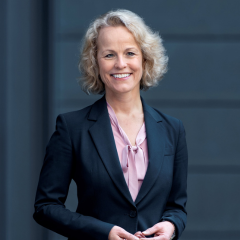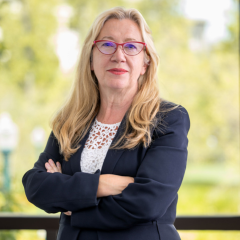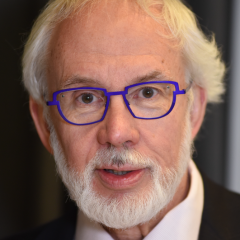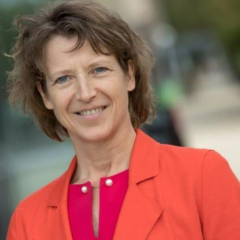Oxford Sustainable Finance Summit
16th - 17th July 2025
Home » Summit 2025
About the Summit
We’re at the start of a major recalibration of sustainable finance that will gather further speed and momentum. While this is potentially beneficial and possibly even desirable, it also presents challenges for a sector that has experienced nearly a decade of rapid non-stop growth. Consolidation and reinvention will require creativity and navigating uncharted terrain.
What must we do differently to achieve the systemic changes required in finance? How can we adapt to a rapidly shifting political and economic context shaped by political upheavals, evolving conflicts, and transformative technologies like artificial intelligence? The ecosystem of actors in sustainable finance has expanded dramatically, both qualitatively and quantitatively, offering new capabilities, networks, and opportunities. How can these capabilities be harnessed?
The Oxford Sustainable Finance Group has world leading researchers and research capabilities to help analyse, understand, and shape these dynamics. In July 2025 we are hosting our third Oxford Sustainable Finance Summit, bringing together leading researchers from across the University with practitioners, policymakers, regulators, and civil society organisations.
Together, we will examine the latest developments in sustainable finance, reflect on lessons learned, and chart the way forward.
Topics
- Polarisation, populism, and what that means for sustainability (and sustainable finance)
- Climate litigation
- EU and sustainable finance: deregulation push
- AI and sustainable finance
- Stewardship and engagement
- GLP-1 receptor agonists and the future of food systems
- Transition plans and transition finance
- India spotlight
- Asset owners and their challenges/opportunities with sustainable investing
- Natural capital and nature finance
- Future of climate politics
- Carbon removal budgets and net zero aligned offsetting
- Spatial finance
- Corporate (and FI) target setting 2.0
Conference Schedule
09:30 – 10:15
Arrival and Registration
Please sign in at the welcome desk and get a tea of coffee
10:15 – 10:30
Welcome Plenary
South School
10:30 – 11:45
10:30 – 11:45
Session I Plenary- Climate change: escaping the polarisation trap
South School
Climate action is increasingly caught in the crossfire of political polarisation and populist backlash. Once seen as a unifying global challenge, sustainability has become a flashpoint in culture wars—subject to misinformation, ideological attacks, and growing public distrust.
In this plenary session, we explore how financial and policy actors can navigate a fractured landscape without losing legitimacy or ambition.
What does effective climate leadership look like in politically divided societies? How can institutions broker consensus while managing conflicting interests? And how do we build strategies that are resilient to political swings, media scrutiny, and stakeholder fragmentation?
From ESG pushback to the erosion of public trust, this panel will examine the risks and opportunities of working toward sustainability in an age of division—and how to avoid falling into the polarisation trap.
Chair: Leo Johnson, Visiting Business Fellow, Smith School of Enterprise and the Environment, University of Oxford
Andre Abadie, Managing Director, JPMorganChase Centre for Carbon Transition
Alicia Kedzierski, Head of Sustainable Finance, Financial Conduct Authority (FCA)
Holly Pattenden, Head of Policy and Regulatory Affairs, UK, Equinor
Joanna Yarrow, Chief Impact Officer, Human Nature
11:45 – 13:00
Session II Plenary – Litigation risk in the new physical and transition risk landscape: who will pay?
South School
Business and investors face increasing risks of climate-related shock and disruption – both physical and transition. As damage crystallises, litigation is a key mechanism by which market actors seek to recover loss. So what are the ‘novel’ climate litigation risks of which companies and their investors should now be aware? And what can be done to manage exposures, proactively? Hear from an expert panel at the vanguard of climate litigation, sharing perspectives on the risk for companies and their directors, investors and insurers.
Chair: Emiliya Mychasuk, Climate Editor, FT
Sarah Barker, Managing Director, Pollination Law
Nigel Brook, Consultant, Clyde & Co LLP
Jasmin Fraser, Climate and Biodiversity Lawyer, Commonwealth Climate and Law Initiative
Matthew Gingell, General Counsel, Oxygen House Group
13:00 – 14:30
Lunch
Break for lunch and networking
14:30 – 15:45
Session III – What does the EU’s deregulation push mean for sustainable finance?
South School
Under pressure from industry, European lawmakers are paring back the region’s sustainability disclosure and due diligence rules. These regulations have been seen by many investors as a source of stability amid the political clampdown on ESG in the US, so what will their revision mean for progress? Will companies and financial institutions see the EU’s rowback as a reason to reduce their own environmental and social ambitions? Will other jurisdictions step in to fill the vacuum? Will the focus shift to real-economy policy?
Chair: Sophie Robinson-Tillett, Senior Associate, Public & Third Sector Academy for Sustainable Finance (P3SA), University of Oxford
James Alexander, Chief Executive, UK Sustainable Investment and Finance Association
Martin Stavenhagen, Policy Specialist in Climate & Transition, Principles for Responsible Investment
Barbara Zvan, Head, Ontario University Pension Plan
14:30 – 15:45
Session IV – AI as an enabler for sustainable financial markets – can it keep the promise?
East School
AI is emerging as a promising, though not yet mainstream, tool in the field of sustainable finance. Its application across various investment steps—from data sourcing and ESG signal extraction to risk management, portfolio optimization and financial supervision—has demonstrated potential to enhance efficiency, scalability, and analytical depth. This panel will explore where the industry currently stands in adopting AI for sustainability objectives, drawing on practical experiences, early use cases, and institutional experiments. We will critically assess the benefits, including automation and improved decision support, alongside limitations such as data quality challenges, model opacity, and real world impacts. Looking forward, the discussion will reflect on AI’s role as a potential enabler of next-generation sustainable finance strategies and supervisory frameworks, supporting more dynamic, data-driven approaches to manage future risks and aligning capital with environmental and social needs.
Chair: Dr Julia Bingler Research Associate in Financial Risk Data Analytics, Oxford Sustainable Finance Group, University of Oxford
Arif Cem Gundogan, Climate Finance and Risk Expert, European Bank for Reconstruction and Development
Dr Francesca Larosa, Marie Curie Fellow, KTH Royal Institute of Technology
Rémy Lecat, Deputy Director, Research and Risk Analysis, ACPR, Banque de France
Lise Pretorius, Chief Sustainability Analysis Officer, Matter
Anne Schoenauer, Co-Founder & CEO, Tilt
15:45 – 16:30
Break
Short break for refreshments and networking
16:30 – 18:00
Session V – Stewardship and Engagement: Learnings from successes and failures
South School
Amid a watering-down of stewardship frameworks and the collapse of coalitions, stewardship is facing a tumultuous time. Questions around the efficacy of investor stewardship have persisted for some time. Provable additionality and real-world impact remain elusive, and political pushback has disrupted progress. Yet plenty of evidence points towards positive impact from stewardship and engagement. This panel will explore key lessons from both successful and unsuccessful investor stewardship efforts, and will discuss critical questions such as:
- What has stewardship achieved?
- What has it proven incapable of achieving?
- How can stewardship be more effective?
- Can it really create real-world impact?
- Is systemic stewardship the answer to persistent criticisms?
Chair: Rob Bauer, Professor of Finance, Maastricht University
Catherine Howarth OBE, Chief Executive, ShareAction
Alex Money, Principal Investigator, Climate Compatible Growth (CCG), Smith School of Enterprise and the Environment, University of Oxford
David Rouch, Partner, Freshfields Bruckhaus Deringer
Ellen Quigley, Special Adviser, Responsible Investment, to the Chief Financial Officer, University of Cambridge
16:30 – 18:00
Session VI – GLP-1 Receptor Agonists and the Future of Health, Economies and Food Systems
East School
The widespread and growing adoption of GLP-1 receptor agonists (e.g., Mounjaro, Ozempic) is already altering consumer food purchases and dietary composition, with early signs of impact on food retail, restaurant sales, and overall consumption. As these drugs become more available and accessible, their influence is expected to extend beyond healthcare, driving broader shifts across industries and economies.
Changes in food demand could have cascading effects on agricultural production, supply chains, and environmental sustainability. In parallel, improvements in metabolic health could reshape labor productivity, workforce participation and public spending. Policymakers, businesses, and investors are beginning to assess the long-term implications.
This panel will bring together experts in food retail and service, public health, health economics, food systems, and environmental science to examine how the adoption of GLP-1 RAs could transform industries and economies over the next 5, 15, and 20 years. Panellists will explore how different sectors are adapting, what uncertainties remain, and how these changes could shape the future of consumption, work, and sustainability.
Chair: Bernice Lee, Hoffman Distinguished Fellow, Chatham House
Professor Jean Adams, Professor of Dietary Public Health, University of Cambridge
Dimitrious Koutoukidis, Senior Research Fellow, Diet, Obesity, and Behavioural Sciences, Nuffield Department of Primary Care Health Sciences, University of Oxford
Archie Mason, Partner, Bramble Intelligence
Stephanie Walton, DPhil Candidate, University of Oxford
Benjamin Yeoh, Senior Portfolio Manager, Global Healthcare, RBC Global Equity, RBC Global Asset Management (UK) Limited, Oxford Sustainable Finance Group
18:30 – 22:00
Networking drinks and dinner reception
Divinity School
08:30 – 09:00
Arrival
Please sign in at the welcome desk and get a tea of coffee
09:00 – 10:30
Session VII – Transition Plans: facilitating transition finance and growth
South School
The development and disclosure of transition plans is increasing globally. The potential of transition plans as a strategic tool to unlock the volumes of finance required is becoming clearer. Recent recommendations and reports across jurisdictions, including Australia, the EU, France, Indonesia, Japan, and the UK, are recognising the power of planning to unlock finance and support growth. This session will explore examples of how transition planning is underpinning efforts to allocate and access finance and how these flows are supporting growth, competitiveness and climate policy goals. It is led by the International Transition Plan Network (ITPN), which brings together governments and regulators on key topics concerning private sector transition plans.
Chair: Kate Levick, Associate Director of Finance & Resilience, E3G
Richard Barker, Board Member, International Sustainability Standards Board (ISSB), IFRS
Sophie Brodie, Associate Director, Climate, Fidelity International
Jonathan Dunn, Head of Climate, AngloAmerican
Daisy Streatfeild, Sustainability Director, Ninety One
Irem Yerdelen, Deputy Chair, Transition Finance Council
09:00 – 10:30
Session VIII – Financing India’s Green Transition
East School
Given the size of its economy, India will play a key role in global efforts towards a sustainable transition; on the other hand, India is still developing and will be adversely impacted due to a changing climate. In this context, we examine the sustainable finance landscape in India, including:
- Given investment needs, where could required capital come from, and what are likely gaps?
- What are the issues, including barriers to investments and climate-related risks, that decisions makers need to address?
- What would the role of key stakeholders, including the public and private sectors, in addressing these issues; including “financing green” as well as “greening finance”?
- What has been done so far – i.e., the policy and regulatory context and progress, e.g., by various ministries as well as the Reserve Bank of India – and what remains to be done, and how does this fit within the changing global context?
Chair: Gireesh Shrimali, Head of Transition Finance Research, Oxford Sustainable Finance Group, University of Oxford
Koushik Chatterjee, Executive Director and Chief Financial Officer, Tata Steel
Dr Dhruba Puryakastha, Executive Director, Observer Research Foundation Middle East
Meyyappan Nagappan, Partner, Trilegal
Ravindra Rathee, Head of International Corporate Development, JSW
Namita Vikas, Founder & Managing Director, AuctusESG Global
10:30 – 12:00
Session IX – Investor Expectations in a Changing World
South School
In today’s rapidly evolving investment landscape, marked by heightened scrutiny around sustainability and climate-related risks, asset owners and asset managers must remain anchored in their fiduciary duties while navigating complex stakeholder expectations. This session brings together leaders from some of the world’s largest capital providers to articulate what they expect from corporate boards, policymakers, investment managers, and even their own organizations when it comes to sustainability. Panellists will explore how policies, corporate strategies, and underwriting standards can be climate-aware and sustainability-informed by design, and discuss the importance of shared responsibilities of all market participants in shaping a resilient future.
Chair: Sue Rust, ESG Editor, Investment & Pensions Europe (IPE)
Laura Hillis, Director, Responsible Investment, Church of England Pensions Board
Richard Manley, Chief Sustainability Officer, CPP Investments
Barbara Zvan, Head, Ontario University Pension Plan
10:30 – 12:00
Session X – Financial instruments for nature: Guiding investors to scalable and impactful returns
East School
As investors and development financiers alike seek solutions to both climate and biodiversity crises, finance for nature has emerged as a critical lever. This roundtable draws on the recent analysis by the World Economic Forum’s Global Future Council on Natural Capital, which has identified a prioritised set of financial instruments with the greatest potential to deliver both impact, scalability, and returns. Participants will explore this curated list – ranging from outcome-based bonds and loans to nature equities and internal pricing – and discuss what is needed to unlock these instruments at scale. Through an open and collaborative format, the session aims to co-create practical pathways for mobilising capital into nature-positive outcomes, identifying policy, institutional, and market shifts that can accelerate and reward progress. Whether you are a policymaker, investor, or practitioner, this is an opportunity to shape the future of financial innovation for nature.
Chair: Shivin Kohli, Lead, Financing for Nature, World Economic Forum
Rob Bailey, Partner, Insurance and Asset Management, Climate and Sustainability, Oliver Wyman
Danielle Carreira, Head of Finance Sector Engagement, Tropical Forest Alliance, World Economic Forum
Dr. Saskia de Vries, Global Practice Manager, Financial Stability and Integrity, World Bank
Pedro Moura Costa, CEO, Sustainable Investment Management
Clare Shakya, Global Managing Director of Climate, The Nature Conservancy
Lunch
12:00 – 13:15
Break for lunch and networking
13:15 – 14:45
Session XI – Future of climate politics internationally: tackling polarisation in the age of Trump
South School
Political support for climate action is under strain. Rising cost of living, new geopolitical threats, public spending pressures, and the growth in support for populist parties have contributed to a weakening of political ambition and faltering delivery of climate goals. The progress by national governments since the Paris Agreement was signed is now at risk, with politicians fearful of backlash to climate policies and an increasingly sceptical media. Climate action is now a regular feature of the ‘culture war’ and party political debates, causing policy to become more volatile and green investment riskier across political cycles.
Is political support for climate action in retreat or has the narrative been exaggerated? How has Donald Trump’s election shaped climate politics globally? Does climate polarisation fall along the traditional left/right axis? In this new political era, how effective are multilateral fora, such as COPs, at ratcheting up ambition and are new approaches to climate action needed? This panel will bring together political and policy experts to understand the forces shaping climate politics and discuss how climate policy can be reframed and reformed to build more durable support in the years ahead.
Chair: Dr Ben Caldecott, Director, Oxford Sustainable Finance Group, University of Oxford
Sam Hall, Director, Conservative Environment Network
Bernice Lee, Hoffman Distinguished Fellow, Chatham House
Pandora Lefroy, Founder, Project Tempo
Daisy Powell-Chandler, Head of the Sustainability practice, Public First
13:15 – 14:45
Session XII – Carbon Removal Budgeting & Carbon Markets: Tools for Net Zero Alignment
East School
There is a growing push to align carbon markets with net zero, balancing emissions sources and sinks in line with the Paris Agreement. The Revised Principles for Net Zero Aligned Carbon Offsetting, released in 2024, set out clearer expectations for credible offsetting and have gained recognition from actors ranging from the White House to Coldplay. Investment patterns in the voluntary carbon market are beginning to reflect these principles, with a broader shift toward integrity-driven credits. But as the world moves from voluntary to compliance carbon markets, what will this mean for net zero alignment?
The stakes of getting this right are high—scientists estimate that carbon removal must scale from 2 billion to between 5-7 billion tCO₂ annually by 2050 to stabilise future warming. Carbon removal budgeting could play a key role in this, helping businesses and governments alike plan for future carbon removal demand and mobilise supply accordingly. Countries like the UK and the EU are already exploring how to integrate removals into emissions trading schemes. The challenge now is ensuring that as carbon market mechanisms scale, doing so in a net zero aligned manner that scaling high quality removals without compromising vital emissions cuts.
Chair: Calvin Quek, Executive Director for Nature Finance at Oxford Sustainable Finance Group, University of Oxford
Lizzy Coad, Partner & Associate Director, Boston Consulting Group
Megan Kemp, Head of Carbon Dioxide Removal, South Pole
Sindi Kuci, Researcher at Oxford Sustainable Finance Group, University of Oxford
Antti Vihavainen, Vice Chairman, Puro.earth
14:45 – 15:15
Break
Short break for refreshments and networking
15:15 – 16:45
Session XIII – Spatial Finance to reduce sustainability reporting burdens: Fix or fad?
South School
Sustainability disclosures are likely to be less rather than more available in the near future. Can we leverage remote sensing, artificial intelligence and other publicly available datasets to get more relevant sustainability insights with less reporting? Or can reliable, decision-useful information for investors only come from disclosures? Which gaps can we fill or not? This panel brings together stakeholders from across the value chain for a frank discussion about the merits and caveats of a technology fix to sustainability reporting burdens.
Chair: Christophe Christiaen, Head of Innovation and Impact, UK Centre for Greening Finance and Investment
Ben Bowie, Founder and Managing Director, TMP Public
James D’ath, Data and Analytics Technical Lead, Taskforce on Nature-related Financial Disclosures (TNFD)
Aarti Ramachandran, Executive Director, Climate and Environment, UBS
Andres Alonso Robisco, Financial Innovation Division, Bank of Spain
Franca Wolf, Principal Analyst, Sustainable Finance at Verisk Maplecroft
15:15 – 16:45
Session XIV – Does corporate climate target-setting have a future?
East School
Corporate climate target-setting frameworks are facing fundamental challenges from all sides. Policy backlash in some markets has led to a backtracking of some financial institutions around collective and individual commitments. Meanwhile, some advocacy NGOs are challenging the ambition of target-setting frameworks, including in at least one case resorting to litigation. The Science-based Targets Initiative, the leading global standard around setting corporate climate targets, has seen its own set of challenges. All this as the 1.5°C no overshoot goal moves out of reach and by extension the ability to meet 1.5°C aligned targets. On the other hand, the urgency of the climate crisis is accelerating and ‘backlash to the backlash’ is fomenting as some European asset owners have made it clear they will look very closely at corporate climate ambition.
This session will explore these challenges and what the next generation of climate targets should look. Questions will cover the problems with corporate (including FI) climate target setting today, the objective of climate target-setting moving forward, what an improved version may look like (including how the 1.5°C goal fits in), and how we get there.
Chair: Jakob Thomä, Co-founder & Research Director, Theia Finance Labs
Jennifer Anderson, Global Head of Sustainable Investment and ESG, Lazard Asset Management
Greg Lowe, Director, Sustainable Finance, Deloitte LLP
Arnaud Cohen Stuart, Head of Sustainability, ING Bank
Saskia Straub, Climate Policy Analyst, New Climate Institute
17:45-19:15
Closing debate – “This House believes the global ESG backlash is justified”
Sheldonian Theatre
Chair: Emiliya Mychasuk, Climate Editor, FT
Proposition
Alex Barkawi, Founder and Director, Council on Economic Policies (CEP)
Nicolette Bartlett, Senior Advisor, CDP
Jakob Thomä, Co-founder & Research Director, Theia Finance Labs
Opposition
Kingsmill Bond, Energy Strategist, Ember Futures
Eldrid (Ellie) Herrington, Head of Academic Engagement, Centre for Climate Engagement, Hughes Hall, University of Cambridge
Anthony Hobley, Deputy Chair, Climate, Risk & Resilience, Howden Group
19:30 – 23:00
Fees
Full Ticket – includes evening receptions & dinners
Day Ticket – for day attendance only
Practitioner (ex-asset owner)
Full ticket £1,100 | Day ticket £750
This category is for private sector practitioners working on or interested in sustainable finance-related topics in financial institutions or real economy sectors.
Asset Owner*
Full ticket £375 | Day ticket £250
Those eligible for the Asset Owner category will be able to prove that they are on the board of directors of or have their primary employment in one of the following types of organisation: pension funds, insurance company general accounts, sovereign wealth funds, or charitable endowments.
Government*, Regulator*, Civil Society
Full ticket £375 | Day ticket £250
This category is for civil servants, regulators, and civil society practitioners working on sustainable finance-related topics.
Academic Researcher
University of Oxford researchers:
Full ticket £150 | Day ticket £85
This category is for researchers with academic or academic-related appointments at the University of Oxford working on sustainable finance-related topics.
Academic researchers:
Full ticket £375 | Day ticket £250
This category is for researchers with academic or academic-related appointments at universities (excluding Oxford) working on sustainable finance-related topics.
Students
University of Oxford DPhil students:
Day ticket £50
This category is for current DPhil students at the University of Oxford working on sustainable finance-related topics only.
All other students (including Oxford students):
Day ticket £100
*We have a small number of fully funded places for participants from asset owners, governments, and financial regulators. Please email us with your biographical details together with information about your position and affiliation, as well as why you are applying for a free place and we will consider this when you apply for a place.
Register
Please click on the button below to register to attend.
Please note that the Summit will be oversubscribed and we strongly encourage early registration.
The registration fee is per person to attend during both days. Single day tickets are not available.
All registrations will be pending until confirmed by the organisers, and fee payment will only be processed once the registration is confirmed.
We expect there to be a significant waiting list for several categories and we will let you know about your registration as soon as possible.
Become a Summit Partner
We have a range of partnership benefits, including speaking slots, branding opportunities, social media engagement, and complimentary tickets for staff and clients, among other things.
We have a preference to work with a small number of strategic partners.
Summit Venues

EXAMINATION SCHOOLS
Main conference venue on Wednesday 16th and Thursday 17th July 2025.
Built between 1876 and 1882 and designed by Sir Thomas Jackson, this historical Grade II listed venue was created to house the University of Oxford’s examinations. Situated in the heart of Oxford, it is easily accessible via a range of public transport methods and is within easy walking distance of many of Oxford’s landmarks.

DIVINITY SCHOOL
Drinks Reception and Dinner on Wednesday 16th July 2025.
Dinner on 19th July will be held at the beautiful Divinity School. Built between 1427 and 1483, it is the oldest surviving purpose-built building for university use, specifically for lectures, oral exams, and discussions. Today the School is used before graduation ceremonies and for other important university events.

THE SHELDONIAN THEATRE
Closing debate on Thursday 17th July 2025.
Designed by Sir Christopher Wren and completed in 1669, the Sheldonian is the ceremonial heart of the University of Oxford.

THE ASHMOLEAN MUSEUM
Reception, dinner, and after party on Thursday 17th July 2025.
The Ashmolean Museum of Art and Archaeology in Oxford was established in 1683. The Ashmolean is the oldest museum in the United Kingdom and the second oldest university museum in the world.
The museum houses the University’s collections of art and antiquities.
Accomodation
Oxford offers a large number of accommodation options in every category. Within walking distance of the Examination Schools there are a variety of rooms available at hotels and Colleges. Here is a list of recommended hotels. Please ensure to book your accommodation well in advance as summer is a busy period in Oxford.
Confirmed Speakers
Lorem ipsum dolor sit amet, consectetur adipiscing elit. Nunc et sapien eget risus vestibulum tempor. Maecenas suscipit nunc sapien, vel finibus enim tempus eget. Aliquam tempor, metus sed bibendum eleifend, augue nulla vehicula turpis, in viverra felis arcu et diam. Sed vestibulum orci risus, a pretium urna dapibus sit amet. Nam pulvinar porta interdum. Donec mattis lacus ac tempor luctus. Duis egestas dui non leo finibus fringilla.









